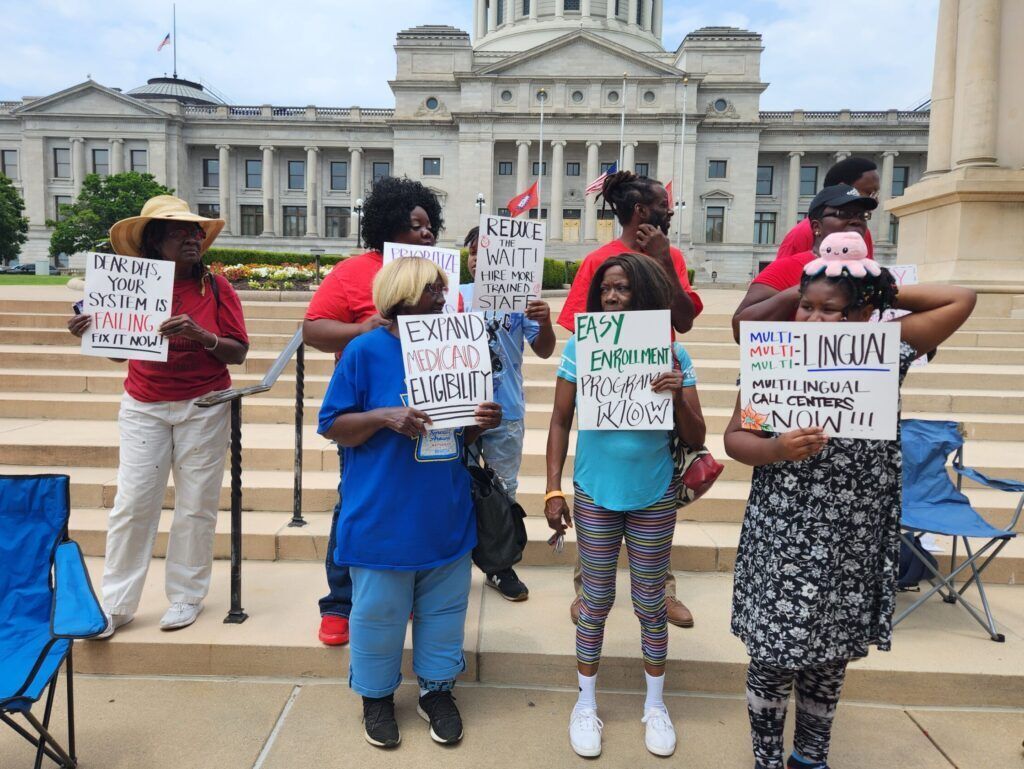Earlier today a three judge panel of the U.S. Court of Appeals for the District of Columbia ruled in favor of the plaintiffs in Gresham v. Azar, concerning the Trump administration’s approval of a restrictive Medicaid waiver project, which among other things, conditioned Medicaid coverage on compliance with work requirements. Judge David Sentelle issued the unanimous opinion. The panel found that in approving the project without considering its effect on Medicaid coverage, the U.S. Department of Health and Human Services violated the Administrative Procedure Act.
The case was originally consolidated with Stewart v. Azar, which challenged approval of a similar waiver project in Kentucky. The Court dismissed that case as moot after the newly elected Governor terminated the project to protect the health and welfare of Kentuckians.
The National Health Law Program, joined by Legal Aid of Arkansas, the Southern Poverty Law Center and, Jenner & Block, represented Medicaid enrollees affected by the waiver project.
National Health Law Program Legal Director Jane Perkins celebrated the ruling, saying, “We are gratified by the court’s ruling today. It means that thousands of low-income people in Arkansas will maintain their health insurance coverage — coverage that enables them to live, work, and participate as fully as they can in their communities.”
Perkins also noted the sound legal justification behind the ruling, “Section 1115 of the Social Security Act only allows the Secretary to approve experimental projects that further the Medicaid Act’s purpose As Judge Sentelle’s opinion repeatedly notes, the text of the Medicaid Act is clear as to this purpose – to provide health care coverage. The agency was bound by the purpose Congress selected and could not change it as it attempted to do. Only Congress can do that.”
Kevin De Liban, attorney at Legal Aid of Arkansas, praised the ruling and the impact it will have on low-income individuals and families.
"The Court recognized the tragic harm that these work requirements have caused for people in Arkansas doing their best to get ahead. Now, more than two hundred thousand Arkansans on the program can rest easier knowing that they'll have health care when they need it."
National Health Law Program Executive Director Elizabeth G. Taylor hailed the ruling as a victory. “This is a victory for our plaintiffs, a victory for low-income individuals and families across Arkansas, and a victory for the rule of law. This is also a mark of the success of our Health Law Partnerships. By leveraging the legal expertise of NHeLP’s litigation team with the on-the-ground knowledge and dedication of our state partners, we have been able to halt the most egregious attempt to undermine Medicaid in decades.”
“We are pleased with the DC. Circuit’s decision today. It makes it clear that the administration cannot simply ignore the devastating real-world consequences of its policies,” said Jenner & Block Partner and NHeLP board member Ian Heath Gershengorn, who argued the case. “This is a victory for thousands of Americans who can now continue to have access to health coverage and health care.”
Sam Brooke, deputy legal director for the SPLC, agreed noting, “The court confirmed that this administration’s effort to ‘explode’ Medicaid by converting it from a health care access program to a work program is arbitrary and illegal. We hope the federal government and the states will return to focusing on expanding coverage and access, so that everyone—regardless of economic status—can be healthy.”




